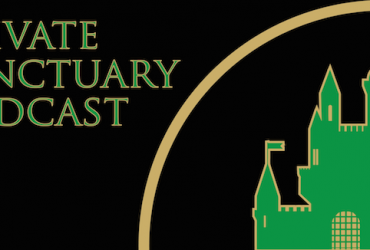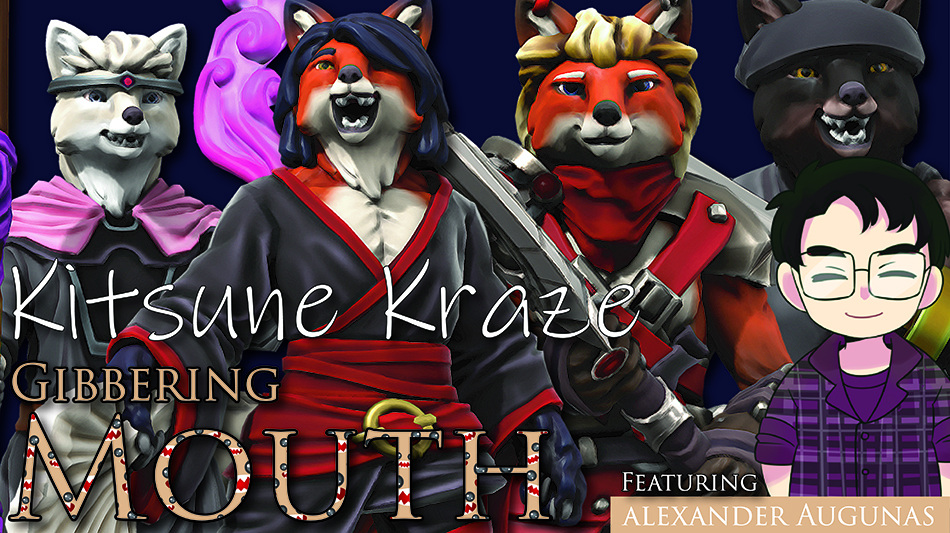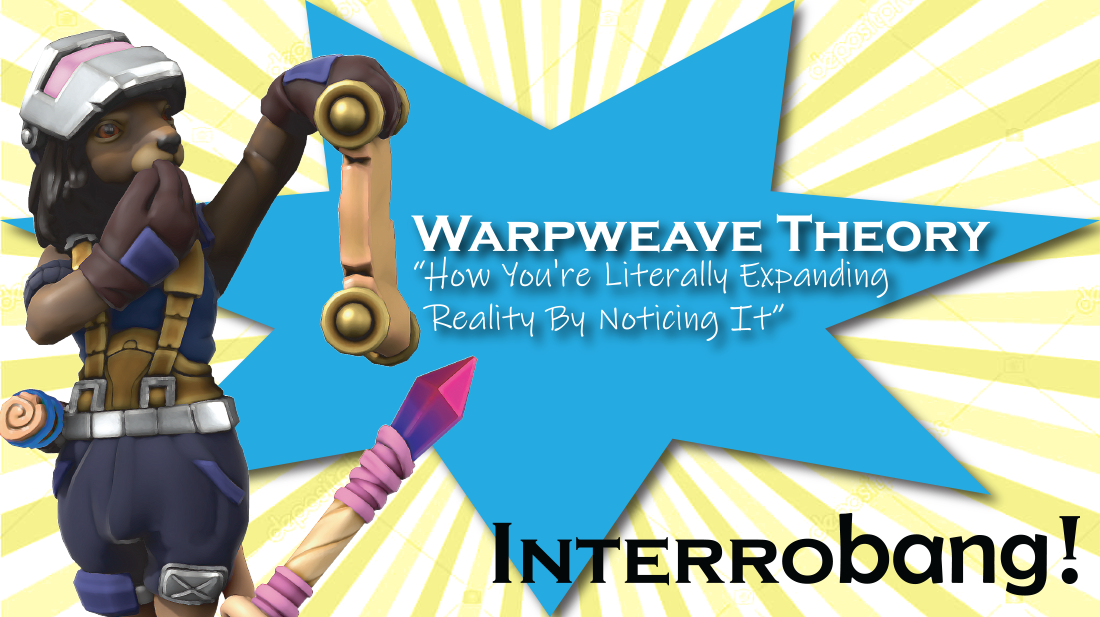Welcome to Guidance, Private Sanctuary’s source for tips and techniques for the Pathfinder Roleplaying Game, written by Everyman Gamer Alexander Augunas. Today, we’re going to be talking about healing.
Healing.
Read any guide online for any class that has healing magic available to it, and you’re likely going to see a bunch of people telling you that healing is worthless in the Pathfinder Roleplaying Game. There are a couple of reasons for this, and they mostly stem back to the action economy. (If you have no idea what I’m talking about, then I’m going to link you WAY back to over a year ago when I did my first articles on the action economy. Take a minute to read them; you’re going to need to in order to understand where we’re going with this.)
Both as a player and as a GM, I don’t think healing is worthless. As a matter of fact, my PFS cleric (the summoning one) has healing as a primary goal in his build. But this wouldn’t be a particularly good player’s guide if I didn’t go over both the good and the bad about healing, so that’s precisely what I am to do on today’s installment of Guidance.
May the gods have mercy on my soul.
What is Healing?
I think its fairly safe to say that almost everyone reading this article is going to know what healing is as a concept, but just in case you don’t I’m going to be going over it quickly before I move on with the article. In a nutshell, healing is the act of mending wounds and revitalizing characters. Specifically in Pathfinder, I refer to “healing” as “any effect that removes hit point damage or negative conditions that directly or indirectly prevent a character from acting.” In this regard, spells like remove paralysis are healing spells because they remove a negative condition from a character. As a result, healing is one of the most supportive of support roles, as you’re directly keeping other players in the fight long enough to secret victory.
Healing as a playstyle in Pathfinder is very black and white; either you love it and swear by it or you hate it and tell everyone never to bother with it. When you get right down to it, there’s only one reason that people like healing: it keeps characters in the game at peak efficiency. On the other hand, there are many reasons to dislike healing as a playstyle, so let’s take a look at those first.
Healing is a Reactive Playstyle
This is the most common complaint against healing, and I also think that it has the most merit. Generally speaking, healing is an extremely reactive playstyle in the sense that a character heals after something bad has happened. For example, a dedicated healer has nothing to do at the start of the fight, before the battle begins.
Furthermore, a healer doesn’t get to decide when she does her cool things; the encounter, and to an extent, the GM does. After all, a healer doesn’t need to use her breath of life spell if the GM’s battles aren’t strong enough to actually hurt the other PCs. To this end, healing also very much relies on the party having characters that are regularly taking damage; it’s a build that very much clashes against players that choose to have a defensive style of play. I will say, however, that for the vast majority of healing classes this is something of a non-issue; Paizo has been VERY good to make sure that most of the healing-enabled classes have ways of making sure that they don’t necessarily need to devote many resources to healing. For example, a Good cleric can spontaneously lose any spell she wants to cast a healing spell while a Good oracle simply adds every cure spell to her list of spells known for free. These classes aren’t taxed for their ability to act as a healer in the slightest, compared to the druid or the shaman, which have to actively devoted spell slots to healing if they want to take the role. Still, players who want to be able to decide their own tactics often dislike the role of the healer because healing fundamentally relies on the bad guys doing something, then reacting to it.
Healing Doesn’t Contribute to Victory
A very, very common complaint about healing that I see is that healing doesn’t contribute to victory. People who enjoy healing are now likely shouting at their screens, cursing, “Poppycock, Alex! Healing keeps my party members alive long enough in order for them to claim victory! Without me, they’d be dead!”
Well, not according to the Action Economy system. If you’ll recall, the Action Economy is measured by the number of actions that both sides of a combat are taking. Teams with more characters tend to have an advantage in action economy because they are performing more actions that are overall leading towards the enemy’s defeat. Also remember that with a very limited number of exceptions, actions in an action economy are a limited resources: there are very few ways to generate more actions for your side.
With this in mind, let’s take a look at what, exactly, you’re doing when you heal. Generally speaking, you’re giving up your action to either partially or wholly undo an enemy’s action. I.e., if you and your party got fireballed for 36 points of damage and you manage to use channel positive energy in order to heal 24 points of damage from all affected allies, then you’ve effectively spent a standard action in order to negate two-thirds of another character’s standard action. That’s all well and good, but you didn’t get your team any closer to actually winning the combat, nor did you do enough healing to fully nullify the previous action. Furthermore, healing is decidedly capped in effectiveness; you cannot do “more” then what your enemies have already done, in a sense. Because of this, healing doesn’t do much in terms of reducing your enemies’ action economy.
Anyone Can Heal, Making Dedication Worthless
Personally, I think this is more of an issue in Pathfinder Society then elsewhere in the game (though your mileage may vary), but it is VERY easy to become a “healer” in Pathfinder, making “healing” as a role a relatively low priority. The simple truth is that scrolls and wands of curing spells, especially cure light wounds, are CRAZY cost effective in Pathfinder. One of the most common player tactics in the game is to take a few minutes “licking your wounds” by spending through some cheap consumable healing items before moving on to the next room. Cure spells are also available to a wide variety of classes, meaning that its not particularly challenging to find SOMEONE who can use the wand that you just found.
In Favor of the Healer
Despite knowing all of this, I’m personally still in favor of the healer role, and being a healer in the Pathfinder Roleplaying Game is something that I enjoy, even moreso then in a game like World of Warcraft. Why, you ask? Well, its time for me to provide some counterpoints to all of the above.
- Reactive Playstyle: Having a reactive playstyle isn’t necessarily a bad thing, and to an extent every character needs to react to other conditions that unfurl around them. (Such as when a fighter pulls out a ranged weapon that she hasn’t specialized with in order to attack a flying foe.) Reactive to what happens around you in order to maximize the effect of your actions in combat is a playstyle strength, not a weakness.
- Doesn’t Contribute to Victory: Healing indirectly provides action economy to the player’s side rather than directly. If a player would have taken enough damage that she fell unconscious, that’s a direct hit to the action economy of the player’s side. A good healer can keep the action economy of other players going by minimizing the effectiveness of her opponent’s action economy. Additionally, offensive actions always have a chance of being wasted; whether you roll a nat 1 on an attack role or simply fail to beat an opponent’s AC or its saving throw is successful. A healer’s actions are never wasted because it is VERY difficult to interfere with healing (not impossible, but VERY difficult). Furthermore, an effective healer can actually return actions to the party by removing paralysis or bringing unconscious players back into the fight.
- Anyone Can Heal: Anyone can heal out of combat, but in combat (especially at high levels), the healing afforded to you by scrolls and wands isn’t enough if an unlucky string of hits manages to catch a player. As the game gets higher, damage actually becomes more likely, meaning that chances are that there is more to heal than before, and a full attack from a powerful monster can easily kill a character. A dedicated healer can return enough hit points to an unconscious character for the healing to matter. For instance, if a character is knocked to negative –7 hit points and is dying, there’s a good chance that a wand of cure light wounds won’t heal enough damage to meaningfully return that character to the fight. (For example, even if you rolled an 8 and restored 9 hit points, the character has 2 HP. Chances are she’ll be knocked unconscious again before she can use her actions in a meaningful way.) A dedicated healer can restore enough hit points to a character that her actions have a meaningful impact on what is happening around her.
Despite all of this, being an effective healer doesn’t mean, “I heal all the things, all day long, with every action.” Pathfinder healing is not the same as Final Fantasy healing, and part of being a good healer is knowing when you need to use your actions healing. When you’re not healing, you need to have other things that you can do to make your party successful, such as buffing, providing flanks, or debuffing enemies. An effective healer is a character who saves their healing spells for those pivitol moments where healing is necessary in order to keep action economy advantage in the hands of the PCs, and the effective GM is someone who can design encounters that make healing a necessary tactic. (More on that in an another action, however.)
In the meantime, I’d like to hear what you have to say. Do you enjoy healing, or is it something you tend to build away from? What’s your favorite role to play in a party? Are there any tips or tricks you’ve learned to playing an effective healer that I didn’t mention here? Leave your comments below, and I’ll be seeing you back here on Friday with an all-new Marvel Comics themed build that you’re absolutely sure to enjoy. I mean after all, everyone loves it when I build Kineticists, right?
Alexander “Alex” Augunas has been playing roleplaying games since 2007, which isn’t nearly as long as 90% of his colleagues. Alexander is an active freelancer for the Pathfinder Roleplaying Game and is best known as the author of the Pact Magic Unbound series by Radiance House. Alex is the owner of Everyman Gaming, LLC and is often stylized as the Everyman Gamer in honor of Guidance’s original home. Alex also cohosts the Private Sanctuary Podcast, along with fellow blogger Anthony Li, and you can follow their exploits on Facebook in the 3.5 Private Sanctuary Group, or on Alex’s Twitter, @AlJAug.






I like this post. while I am not often a major healer, my favorite builds usually work off the same principal. that being that improving the action economy of my teammates is worth taking up my own actions.
I tend to fall in the “I keep the party alive to succeed” camp. I tend to play clerics, and have through multiple editions (i.e.1st ed to pathfinder). That being said – being a happy and successful healer means that you aren’t healing every round – and the decision to use your healing or not should govern your action economy – will channeling to cure the rogue who fell down benefit the party more than casting the bless? Especially if the rogue is vulnerable to attacks of opportunity if they stand, or easily targeted as a newly healed foe? (In this situation I actually let the rogue lay there for a couple of rounds before healing……)
I think one of the reasons people hate healing is the tendency to shove or bully some players into the “healbot” role, and this usually happens to the newest players or the player who is a minority in some way (age, gender, race, whatever). Those players reasonably end up with a strong distaste for the healing role, and disparaging the role as a whole is a way to escape from the “healbot ghetto” without having other players accuse you of being selfish.
We had a big problem in our PFS area several years ago where some players would bully new players into the healer role and then demand that the healing players also spend all of their wealth on healing consumables. The whole “buy your own damn cure light wand” movement was a strong reaction to this problem, and we went several years without seeing any healer builds in our area.
I agree with this article, there’s more to healing than to simpy repeat the common wisdom of “don’t do it in combat”. Not every party setup, not every played adventure or scenario allows for a group to go in all first-strike to shut down the opponent before he can even deal any damage.
I’ve never played a dedicated healer myself, just a roguish cleric in 3.5 who helped out here and there when things turned sour. But I’ve been running a PF game for some years now and time and again I was able to observe how immensely helpful a “real” healer can be for a party. Right now my group is running through a hexcrawl and without the Oracle they would all have died… I dunno, like seven times at least. And everybody at the table is grateful for that, they even pool resources to keep the Oracle happy. Also, with all the player options these days, a dedicated healer can bring so much more to action than just refreshing hit points – my players REALLY learned to appreciate Fateful Channel (which allows any healed creature to re-roll a d20 in the next (CHA) rounds) – so it’s not even a boring, one-sided job anymore.
During the 3.5 era I had a series of clerics I played that were Half-orc or human clerics of various gods or goddesses of war, justice, valor, battle, etc….who had a philosophy of “I only heal between battles, because I don’t want to deny myself or others the opportunity to have a glorious death in combat.
I finally learned the problem of this philosophy is those characters tended to…die.
i love the advice of knowing that there is a time to heal, a time to buff, a time to flank….a time to strike…a time for peace (I swear it’s not too late)..sorry…I had to go there.